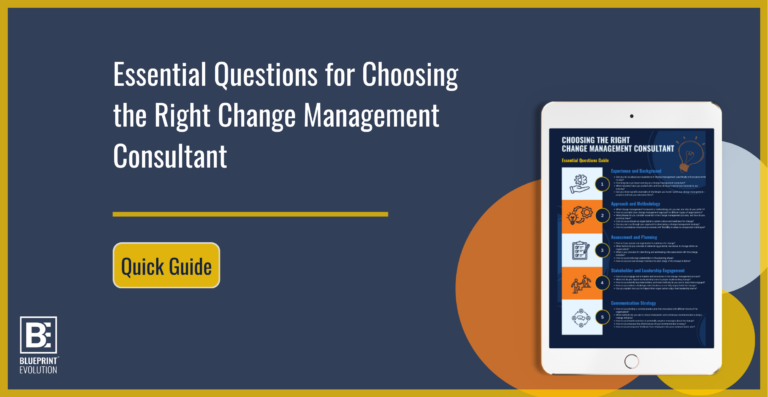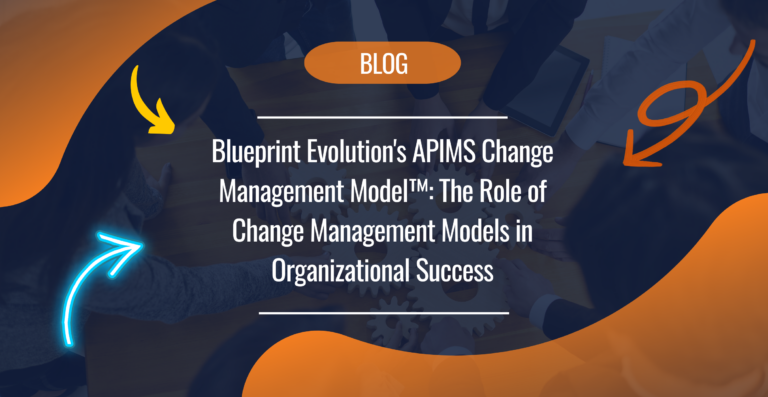THE CRITICAL ROLE OF LEADERSHIP IN CHANGE MANAGEMENT
Why Leadership Engagement Matters
- Setting the Tone: Leaders influence organizational climate and employee morale. Their active participation in change initiatives demonstrates a commitment to the company’s values and goals, encouraging employees to embrace change rather than resist it.
- Building Trust: In times of uncertainty, employees look to leadership for direction and reassurance. Visible and engaged leaders are more likely to maintain team cohesion and morale.
- Change Through Human-Centered Practices: Leaders who champion and implement inclusive practices are better equipped to cultivate a culture that values diverse perspectives, enhancing problem-solving and innovation during periods of change.
- Guiding the Organization: Effective leaders are not just decision-makers; they are navigators who guide their teams through the complexities of change, addressing challenges and celebrating milestones.
- Successful Outcomes: Organizations with highly engaged leaders see more successful implementation of change initiatives, as these leaders are actively involved in the planning, execution, and review phases of change management.

The Blueprint Difference
Contact us today to explore how we can assist you in leveraging your change management strategies into a strategic advantage.

Effective communication is essential in change management. It ensures transparent delivery of the reasons for change, anticipated benefits, and its impact on both individuals and the organization. As imperative components of this process, it’s critical to maintain regular updates and foster inclusive, open channels for feedback.
Engaging employees in the change process fosters a profound sense of ownership and commitment. This entails actively seeking their input, addressing concerns, and involving them in decision-making whenever possible. Through their participation, a more positive, inclusive, and collaborative atmosphere is cultivated, significantly enhancing the effectiveness of change management strategies.
Providing training and support to empower employees with the skills and knowledge needed to navigate changes adeptly helps with the growth process. This might involve workshops, coaching sessions, or customized educational programs to strengthen capabilities and nurture confidence throughout the transition.
Effective change management hinges on visible and active support from organizational leaders. Leaders are instrumental in setting the tone, demonstrating unwavering commitment, and guiding the organization inclusively through the change process. Their hands-on involvement fosters employee trust and confidence, ultimately driving the successful implementation of change.
Change Readiness and Planning involve assessing the organization’s preparedness for change, identifying potential challenges, and formulating a comprehensive change management plan aimed at fostering trust and securing buy-in throughout the transition. This plan encompasses strategies to address resistance and outlines the specific steps and milestones of the change initiative.
- Communication & Marketing Strategies
-
Effective communication is essential in change management. It ensures transparent delivery of the reasons for change, anticipated benefits, and its impact on both individuals and the organization. As imperative components of this process, it’s critical to maintain regular updates and foster inclusive, open channels for feedback.
- Employee Involvement & Engagement
-
Engaging employees in the change process fosters a profound sense of ownership and commitment. This entails actively seeking their input, addressing concerns, and involving them in decision-making whenever possible. Through their participation, a more positive, inclusive, and collaborative atmosphere is cultivated, significantly enhancing the effectiveness of change management strategies.
- Training & Skill Development
-
Providing training and support to empower employees with the skills and knowledge needed to navigate changes adeptly helps with the growth process. This might involve workshops, coaching sessions, or customized educational programs to strengthen capabilities and nurture confidence throughout the transition.
- Leadership Engagement
-
Effective change management hinges on visible and active support from organizational leaders. Leaders are instrumental in setting the tone, demonstrating unwavering commitment, and guiding the organization inclusively through the change process. Their hands-on involvement fosters employee trust and confidence, ultimately driving the successful implementation of change.
- Change Readiness & Planning
-
Change Readiness and Planning involve assessing the organization’s preparedness for change, identifying potential challenges, and formulating a comprehensive change management plan aimed at fostering trust and securing buy-in throughout the transition. This plan encompasses strategies to address resistance and outlines the specific steps and milestones of the change initiative.











